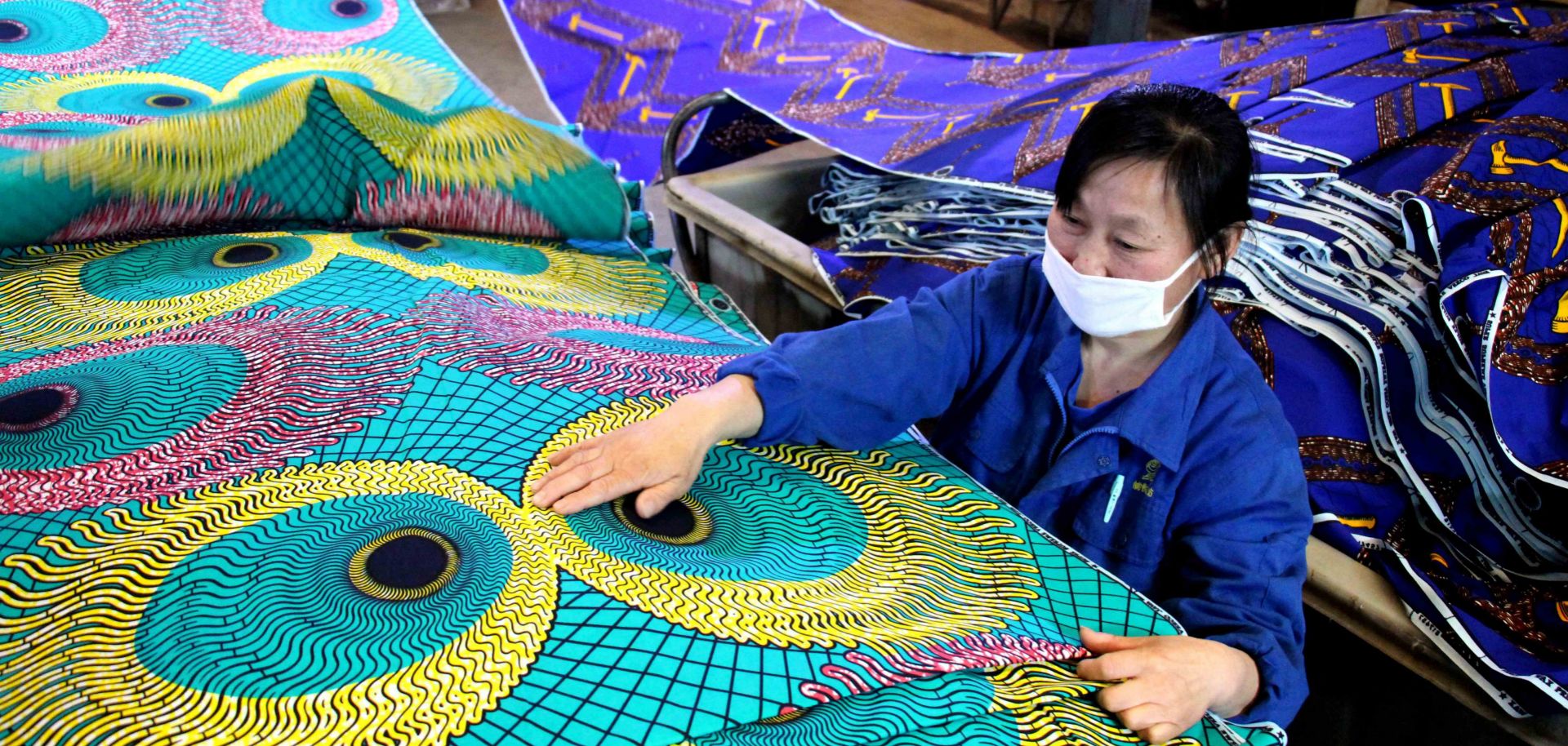COLUMNS
The End of Strategic Luxury for China

Feb 14, 2019 | 23:07 GMT

A worker produces fabric in a textile factory in Binzhou in China's eastern Shandong province. A trade war with the United States has restricted options for Chinese leaders looking to restructure its economy away from dependence on low-level manufacturing, which was once its backbone.
(STR/AFP/Getty Images)
Highlights
- Signs of China's economic maturation, such as decreased reliance on exports and reduced returns on government-led investments, have promised an era of slowed Chinese economic growth since the years after the global financial crisis.
- China needs more time and space to facilitate its domestic socio-economic transformation and upgrade its value chain, but it is losing the "strategic luxury" of a relatively stable external environment.
- Beijing will reverse infrastructure spending and credit expansion and try to use financial incentives to stimulate domestic consumption where it can, but it is likely to face greater economic pain, at least in the short term.
Subscribe Now
SubscribeAlready have an account?
